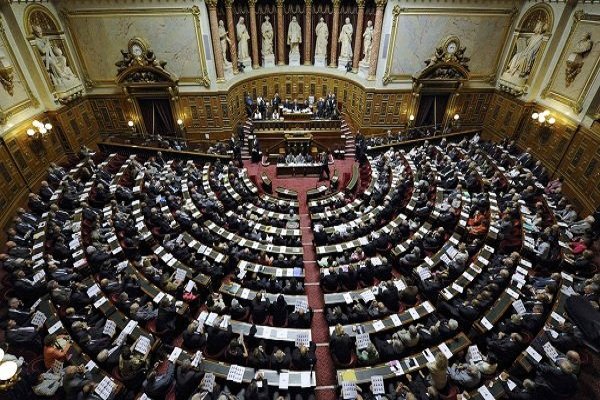Mehdi Khorsand, in an interview with the website of the Strategic Council on Foreign Relations, explained: One of the most important fields pursued by those countries in the South Caucasus was the exploration of rich energy resources and reserves in the blue zone of the Caspian, which had doubled the importance of that region. The Europeans, who were always looking for an ally in order to have an alternative in the field of energy and get rid of the monopoly of the Russian market, saw the tension in the South Caucasus between the Republic of Azerbaijan and Armenia as the best opportunity to open a foothold in that strategic region.
Pointing out that the Europeans, led by France, made great efforts to create the so-called peace in the South Caucasus, Khorsand continued: But those efforts, due to their self-interested nature and imbalance in securing the interests of the two countries involved in the tension between Karabakh and the main regional players, that is to say Iran and Russia, always faced failure.
The expert, commenting on the role of Turkey in the tension, said: Meanwhile, we should also mention the role of Turkey in the Republic of Azerbaijan. Since one of the main players of the European Union, that is to say France, has always opposed Turkey’s membership in the European Union over the past years, Ankara’s negative view of France has not been ineffective in Baku’s negative view against the so-called peace-making measures of Paris in the past two or three years.
He continued: On the other hand, with the escalation of tension between Russia and Ukraine, the need of Europeans to have an alternative energy for the cold season of the year was strongly felt; to the extent that French President Emmanuel Macron several times provided the ground for direct communication between the authorities of Baku and Yerevan, so that firstly, through this measure, he could create for himself the image of the leadership of the European Union in solving international problems, and secondly, by being a player in the equations of “Russia’s Near Abroad” or Russia’s backyard, he could put pressure on Moscow in the days of war with Ukraine, and of course look for alternative energy for himself.
Saying that the negative view of Turkey, which these days has become the main factor in directing the positions of Ilham Aliyev’s government in Baku, casts a shadow on the activism of Paris, Khorsand added: Therefore, Turkey will not allow France to interfere more in the equations of South Caucasus.
The expert on Caucasus affairs also explained the reasons for issuing that resolution in the French Senate, saying: One of the main reasons for issuing a resolution in France against the Republic of Azerbaijan goes back to the announcement of official support of Paris for Armenia, and it shows that the European Union, led by France, has also reacted to the militarization of the Republic of Azerbaijan in the South Caucasus.
According to Khorsand, on the other hand, this action of Paris shows that Armenia is not alone in the tension with the Turani axis in that region, and the equations of the region will not be regulated, implemented and become operational only at the will of the Turani axis.
The expert also referred to the situation of Armenia in the tension with the Republic of Azerbaijan and said: The government of Armenia which is in a situation where it is almost at the lowest position in terms of attracting the support of international institutions, should make the most of the regional support capacities.
He added: Also, instead of giving opportunities to extra-regional players for being present in that region to resolve the tension, Yerevan should look for peace initiatives through initiatives in which regional players are present.
Pointing out that the three plus three peace initiative was formed with the presence of Iran, Russia and Turkey on one side and the Republic of Azerbaijan, Armenia and Georgia on the other side, and every decision taken can include the interests of all parties. He emphasized that this initiative can bring about a more stable peace and ceasefire, as well as provides clear and stress-free benefits to the main regional players.










0 Comments